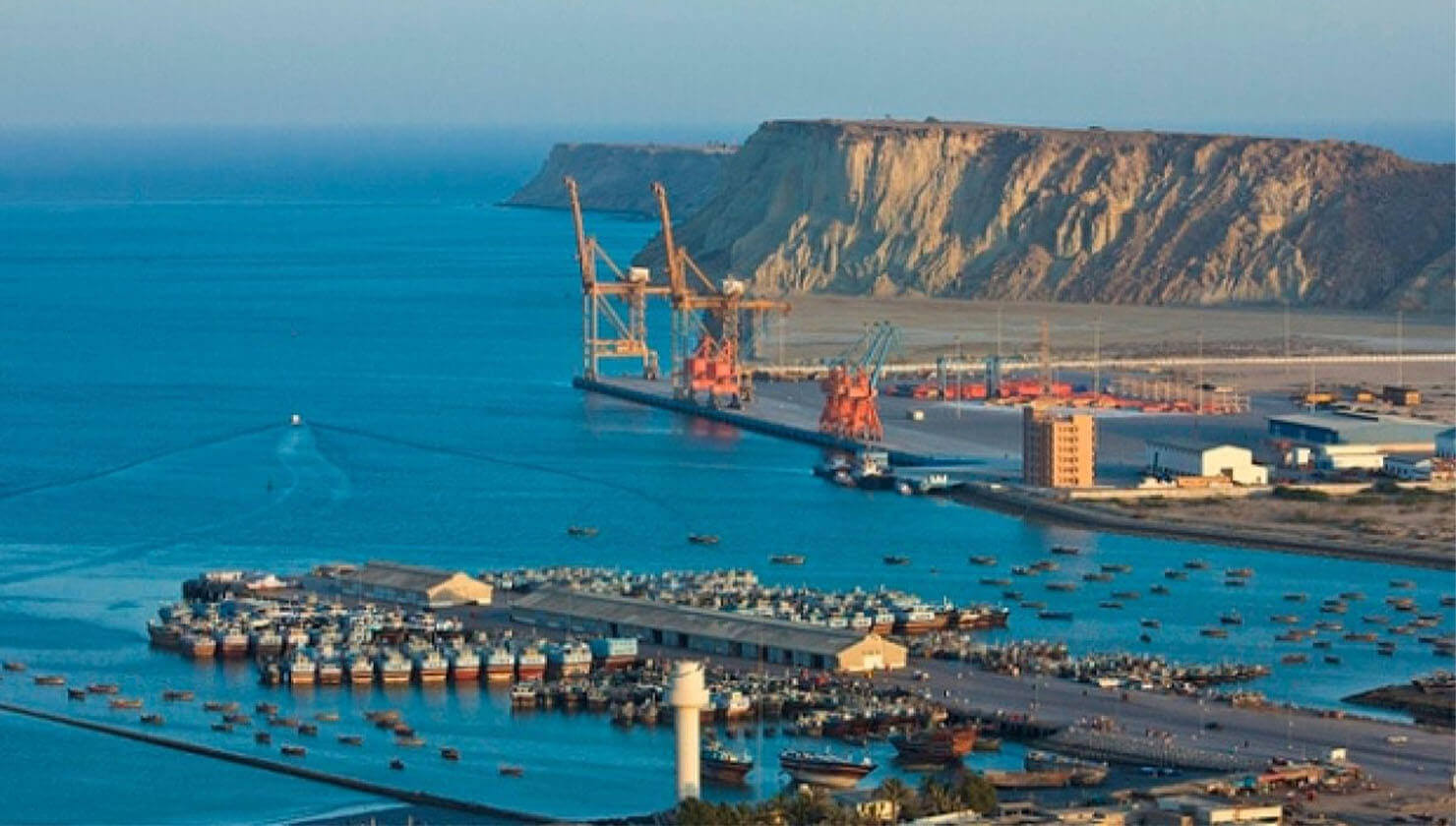Following Pakistan and China’s recent suggestion that third countries could be included in China-Pakistan Economic Corridor (CPEC) projects, Indian External Affairs Ministry (EAM) spokesperson Arindam Bagchi said India “firmly and consistently opposes” projects in Pakistan-occupied Indian territory. He warned that such initiatives would be “illegal, illegitimate, and unacceptable” and be “treated accordingly by India.”
Pakistan, in turn, rejected Bagchi’s “baseless and misguided remarks,” affirming that CPEC is a “transformational project and a harbinger of stability, mutual cooperation and shared development for the region.” It added that the projects would help the region “break from zero-sum approaches”, referring to how it has helped Pakistan “overcome the energy and infrastructural bottlenecks that once constrained growth and development.”
The Pakistani Ministry of Foreign Affairs (MOFA) press release said Bagchi’s remarks show “India’s insecurity” and “hegemonic agenda,” which it said have “held back” South Asia’s development for decades.
The release also criticised India’s occupation of Kashmir for “over seven decades,” its perpetration of “gross and widespread human rights violations,” and its decision to make “blatant territorial and demographic changes.”
🔊: PR NO. 3️⃣3️⃣3️⃣/2️⃣0️⃣2️⃣2️⃣
— Spokesperson 🇵🇰 MoFA (@ForeignOfficePk) July 26, 2022
Pakistan categorically rejects Indian MEA’s preposterous remarks on CPEC
🔗⬇️https://t.co/y9pxSu5L5O pic.twitter.com/9yug9ivsJS
Following a meeting of CPEC’s Joint Working Group on International Cooperation and Coordination on July 21, the Chinese foreign ministry issued a press release saying the two sides could “inject new impetus” into their cooperation via China’s Belt and Road Initiative by “promoting cooperation schemes involving third parties.” Many CPEC projects run through territory that is claimed by both Pakistan and India, particularly in Pakistan-Occupied Kashmir.
In a virtual meeting co-chaired by Pakistani Foreign Secretary Sohail Mahmood and Chinese Assistant Foreign Minister Wu Jianghao, Islamabad and Beijing “underscored the centrality” of their “all-weather” Strategic Cooperative Partnership, with a focus on the development of industry, agriculture, and science and technology. In this regard, the Pakistani MOFA’s press release also called for the extension of CPEC to Afghanistan and the inclusion of third parties to “benefit from avenues for mutually beneficial cooperation opened up by CPEC.”
The meeting, which stressed the need to “energise bilateral cooperation” and help Pakistan achieve “economic modernistation,” was also attended by senior foreign ministry officials as well as Pakistan’s Ministry of Planning, Development, and Special Initiatives and Board of Investment, as well as China’s National Development and Reform Commission.
India slams Pak- China proposal to invite a 3rd country in CPEC; remember CPEC Joint Working Group (JWG) met last week inviting countries to join it. CPEC passes through Pak Occupied Kashmir.
— Sidhant Sibal (@sidhant) July 26, 2022
MEA statement: pic.twitter.com/7HKjnk4SVv
A few days after the meeting, the Pakistani Ambassador to China Moin ul Haque highlighted the “vital role” played by CPEC in Pakistan’s economic development. He said that half the projects had already been executed, including major hydropower, wind, and solar energy projects that formed the first component of the first phase of projects.
He revealed that the second component is aimed at improving “communication and road infrastructure” by building “infrastructure, highways, waterways, and bridges” across Pakistan. A critical part of this is the fibre optic link between China and Pakistan to expand their communication network.
1/2 Good news that business communities, financial institutions & govt officials are jointly promoting #SEZ development under #CPEC. ICBC Karachi & CRBC jointly held a webinar on China Pakistan Industrial Investment & Cooperation for Rashakai SEZ through ICBC Business Matchmaker.
— Chinese Emb Pakistan (@CathayPak) July 20, 2022
Haque said the third component is the construction of the Gwadar port, which is “almost complete and functional.” He added that they are establishing a special economic zone in Gwadar, where a number of Chinese companies will soon begin operations.
He thus celebrated CPEC reaching its second phase—“industrialisation, agriculture, social well-being of the people, poverty alleviation, and green economy.” To this end, the two sides have also opened up healthcare, digital, and green ‘corridors,’ with a focus on agriculture and food security as well as exploiting China’s technological expertise.
Pakistan and China launched CPEC in 2015 under Chinese President Xi Jinping’s flagship Belt and Road Initiative. India has opposed the Corridor, as many of its projects pass through territory it claims as its own.
Even within Pakistan, rights groups and opposition leaders, particularly in the Balochistan region, argue that CPEC projects are exploiting natural resources and excluding local communities from reaping their benefits.
The 3rd meeting of the CPEC Joint Working Group (JWG) on International Cooperation and Coordination (JWG-ICC) was co-chaired by Foreign Secretary Sohail Mahmood and China's Assistant Foreign Minister Wu Jianghao. The meeting was held in the virtual mode on 21 July 2022 pic.twitter.com/6PmOgM8NHb
— Pakistan Embassy China (@PakinChina_) July 22, 2022
Moreover, the major general of the Pakistani army, Ayman Bilal, has previously admitted to being tasked by China to bring an end to the freedom movement in Balochistan.
In fact, these grievances are thought to be behind the attack on the Balochistan Liberation Army’s attack on the University of Karachi’s Confucius Institute in April, when three Chinese nationals were killed.
Critics have also opposed the establishment of a fibre optic link due to its prospective use for surveillance against citizens.

